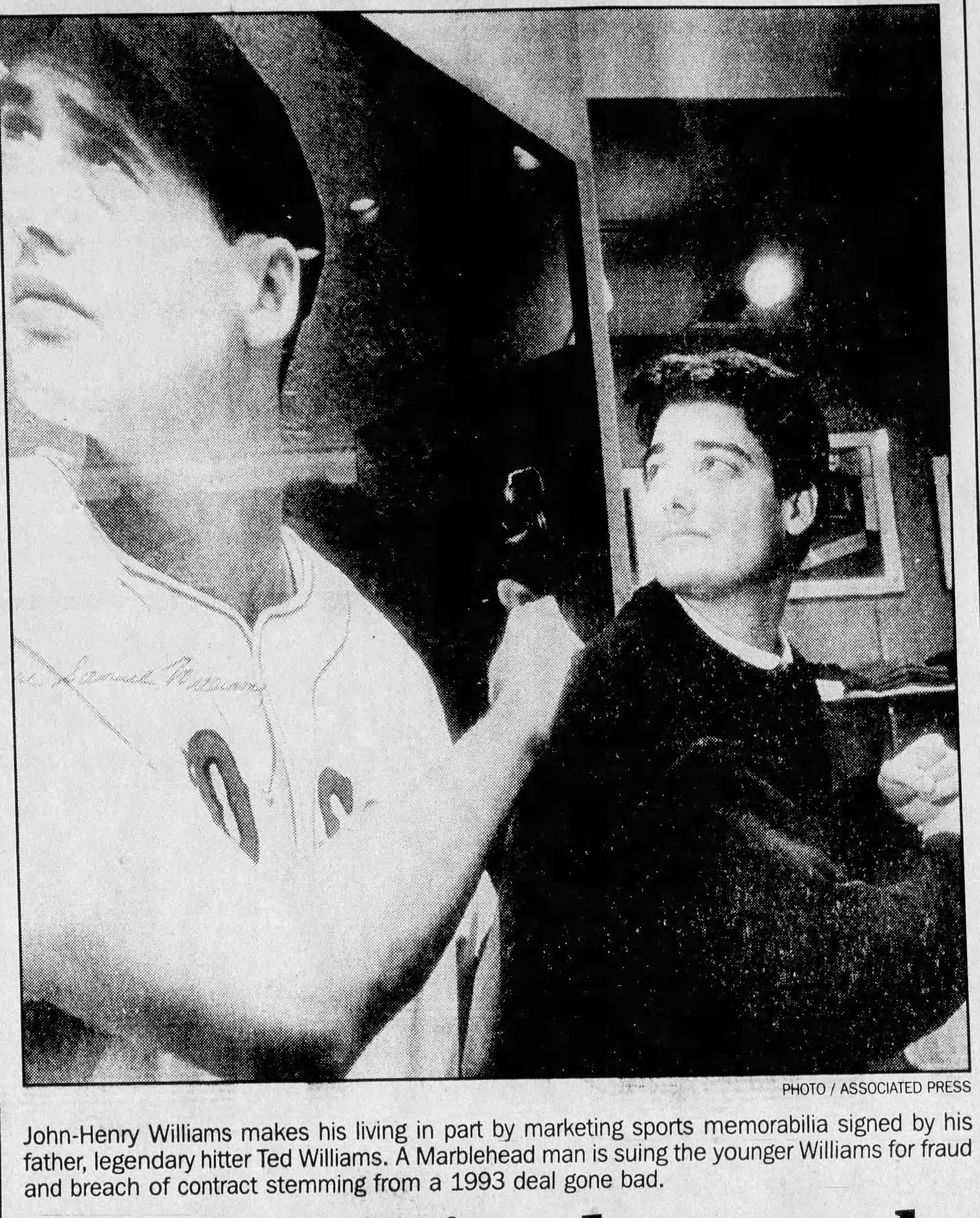What do Larry Bird, Charles Barkley, Ted Williams, Marblehead, and sports cards all have in common?
On the surface, not much. But 25 years ago, they were all at the center of a lawsuit accusing Williams’ son of breach of contract, fraud, and unfair and deceptive practices, stemming from a deal made by Lane A. Forman and John-Henry Williams to market Bird and Barkley merchandise.
Along with John-Henry Williams, Brian Interland, a family friend, and Grand Slam Marketing, Inc., where Interland and Williams served as vice president and president, respectively, were named as defendants in Forman’s suit.
“John-Henry Williams and Brian Interland used me to get to Larry Bird and Charles Barkley because I was friends with them,” said Forman, a former intern in the Celtics’ public relations office who was working as a representative for Gloucester-based Leisure Casino Cruises at the time.
According to Forman, the athletes “did something” for Grand Slam but were not paid for it.
“They didn’t get anything but swindled,” he said.
In a telephone interview, Williams and Interland told The Daily Evening Item that Forman fulfilled the function of a groupie in rock and roll, but for sports.
The complaint filed by Forman did not specify what he was seeking in damages, but he claimed he was set to receive 10% from Grand Slam’s profits stemming from Bird and Barkley’s popularity.
“I know this: It’s in the hundreds of thousands of dollars,” he is quoted as saying.
Barkley’s business agent, Glenn Guthrie, confirmed Forman’s role in the deal, saying he “definitely brought the two groups together.”
“We had a contract,” Guthrie said, adding that Barkley did receive some payment upfront but not a royalty. “These trading cards are a necessary evil.”
Bird, the coach of the Indiana Pacers at the time, declined to comment on the suit.
The Item reported that Forman had pacts with Grand Slam for “as long as (it) markets” Bird and Barkley. But, Interland said those contracts were absorbed by Ted Williams Card Co., an autonomous company based in San Diego that he also served as vice president for, and Grand Slam no longer existed. As a result, Interland believed the company had no obligation to Forman.
The Ted Williams Card Co. declared bankruptcy in 1995 after a “nasty” court battle with Upper Deck Authenticated, a rival company, over the rights to Williams — but not before it created the Ted Williams ‘94 Premiere Basketball cards featuring Bird and Barkley. That set included “Larry’s Hardwood Legends” and “Sir Charles’ Royal Court,” the paper reported.
“The suit has no merit,” said John-Henry Williams’ attorney, Peter H. Sutton. “It was brought at a time when John-Henry Williams was a witness in a federal procedure and was geared at damaging his credibility.”
This case appeared likely to go before a judge for the first time in 1999.
The case John-Henry Williams served as a witness for stemmed from an accusation that Phil Castinetti, the owner of SportsWorld in Everett, tried to sell Williams a pair of Ted Williams’ American League Championship rings that had been stolen from the son by a former college roommate. Castinetti was later acquitted.
Castinetti accused Interland, a “former friend,” of “(walking) over anybody to help himself.”
Forman’s attorney, F. Kelley Landolphini, described him as “a guy with a big heart.”
“He’s probably the most knowledgeable person about sports I know,” Landolphini said. “Mr. Forman created the relationship by providing access to Bird and Barkley. Grand Slam then promoted their sports cards and sold them at what we believe to be a handsome profit.”
“The problem is that there has been a denial by the defendants of an existence of a relationship with Bird and Barkley,” he added. “I think the facts are going to show that the way we have avoided litigation was to be honest when there was a demand for accounting made by Mr. Forman literally years ago.”

